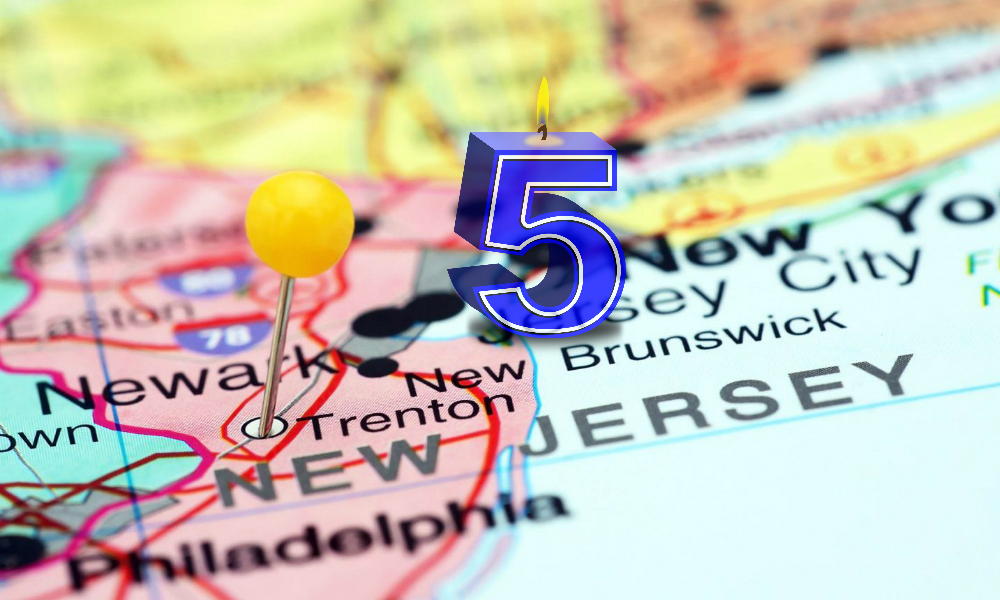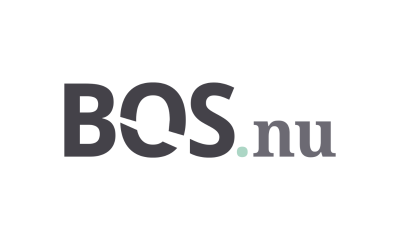Gambling in the USA
Five years, five biggest lessons learned in New Yersey’s online gambling

On February 26, 2013, New Jersey celebrated a historic milestone. It was on that day that then Governor Chris Christie signed Assembly Bill 2578, which legalized online poker and casino games in the state, into law.
Exactly nine months later the first regulated sites went live. And while the industry was not without its growing pains, it has proven an overwhelming success, generating over $130 million for state coffers and contributing to the revitalization of downtrodden Atlantic City.
In this retrospect we take a look at some of the biggest lessons learned during the industry’s first five years, paying particular attention to unexpected trends that threw analysts for a loop. New states considering iGaming legislation can look to these examples in order to glean a better perspective as to how to max out their own industries.
1 — Outrageous projections are damaging
Exaggerated revenue projections are nothing new, especially in regard to nascent industries. But when those predictions are so outrageous that the new industry has absolutely no chance of meeting expectations, it can have a long-term detrimental impact on public perception.
This is exactly what happened to the NJ online gambling industry.
Conservative estimates projected $200 – $300 million in first-year revenue; lofty but attainable under the right circumstances. They weren’t the problem. It was Morgan Stanley‘s estimate of $1 billion, and Chris Christie’s own projection of $1.2 billion which made headlines, ultimately putting the industry in an unenviable spot.
How Christie derived this figure is anyone’s guess, but we suspect it has something to do with bolstering his political clout. Unfortunately, when the industry posted first-year revenue of $122.9 million — a very respectable number — it was widely viewed as a colossal failure. As a result, other state legislators shied away from online gambling, and it wouldn’t be until 2017 that another state (Pennsylvania) legalized the activity.
Thankfully, industry operators weren’t deterred by the negativity. Last year, NJ online gambling generated $245.6 million, and in January 2018, it set a new high-water mark for monthly revenue.
States on the fence about iGaming legislation are advised to look at this growth trajectory, and not be fazed that NJ online gambling sites didn’t live up to the bombastic predictions set forth by Christie in 2013.
2 — Online casino is the new online poker
When Black Friday forced PokerStars, Full Tilt, and other major online poker brands out of the US in 2011, players were rightly devastated. At the time, poker was something of a national pastime in the states, and its sudden removal cost many residents their livelihood, and a significant number their jobs.
By 2013 online poker was well past its popularity peak, but that didn’t prevent players from becoming enthused about its return to New Jersey. Unfortunately, these players were met with a hard reality early on, that this new online poker market was merely a shadow of its former self.
Most of the problem had to do with the capped liquidity of the NJ market. Prior to Black Friday, sites had a population reach in the hundreds of millions. Now their reach was just under 9 million. Factor in the industry’s various early struggles (payment processing limitations, geolocation failures) and traffic and revenue quickly floundered.
During those early days, operators poured countless marketing dollars into poker (remember 888’s 80% rakeback deal?), believing it to be the best use of their funds. They were wrong, and in being wrong they hindered the growth of online casino — a vertical that did not depend on high liquidity for success.
Since, they’ve learned their lesson and online casino sites have thrived. In 2017, online casino accounted for a staggering 90.1% of industry revenue.
Granted, we do think online poker will capture more market share in 2018, but that’s only because NJ has taken steps to rid itself of its liquidity problem, by forging a player pooling compact with Nevada and Delaware.
3 — What’s in a brand? Apparently, not everything
When NJ online gambling launched in November 2013, analysts believed that Caesars and Borgata sites would dominate the landscape. They did, for a time.
But it quickly became clear that over the long-haul, strong branding was only one piece of the puzzle. Nowhere was this more evident than on Golden Nugget licensed sites. A relatively small casino brand in New Jersey, at least compared to Borgata and Caesars, Golden Nugget purposely held back on its marketing spend for about a year, only to open the floodgates once other sites pulled back on their initial promotional blitz. It was also around this time that it picked up Betfair, a highly regarded international brand, under its license.
This one-two punch worked, and the positive results were amplified by the operator’s aggressiveness, resulting in a rapidly expanding game library, new formats, better software, and top-flight payment processing. Since, Golden Nugget has never looked back, and in January 2018 it became the first operator to generate over $7 million in a calendar month. For perspective, no other operator has ever pulled in $5 million.
Other smaller brands have also done well. Resorts, Atlantic City’s smallest casino brand and a latecomer to the online market, defied all odds and now accounts for significant market share. Why? Probably because its casino software and game libraries are second to none.
And for what it’s worth smaller brands are apparently making an impression on AC’s big hitters. Recently we’ve seen sites under the Caesars license make a host of improvements, and Borgata has been upping its online casino game considerably of late, via new games and creative promotions.
The lesson here is that smaller casino brands in other states have plenty of reason to lobby for iGaming, perhaps even more than bigger names, because the online space is a more level playing field.
4 — AC and NJ online gambling, perfect together
One of the chief concerns revolving around NJ online gambling was that the industry might cannibalize Atlantic City revenue. Not only were these worries quickly put to bed, but it was revealed that online gambling had a complementary impact on brick & mortar casinos.
As early as February 2014, three months after industry launch, it was shown that online and land-based players come from very different stock, with little overlap. Going further, a portion of these online players were incentivized to visit Atlantic City for the first time.
We’re not saying online gambling is the sole reason Atlantic City land-based gaming revenue has stabilized, but it’s certainly a factor.
Not only that, but iGaming has proven to bolster Atlantic City revenue under select circumstances. To wit, it was recently reported that AC revenue was down a sharp 10% in January, primarily due to a string of inclement weather early in the month. However, for that very same reason, online gambling soared to a new revenue record.
Without online to cushion the blow, AC revenue would have fallen by a much larger margin, and that’s worth something.
Unfortunately there are still some holdouts that earnestly believe online will cannibalize their business. Hopefully these misguided fears will be dispelled once proof mounts in other states that this is not the case.
5 — Live Dealer proves a critical addition
The impact of Live Dealer games, launched on Golden Nugget Casino in 2016 and Betfair Casino in 2017, is not to be overlooked.
Not only do Live Dealer games take in some healthy wagers, but they’re proving a gateway to online gambling for those more comfortable with brick & mortar casino settings. In turn, some of these new players eventually warm up to electronic games.
We don’t have exact revenue figures for Live Dealer games, but based on the vertical’s growth — both in the number of tables running and hours of operation — we suspect it’s growing quickly.
Expect Golden Nugget to roll out several more Live Dealer games this year, including the Bet Behindfeature for blackjack, which could be a game changer. It’s also plausible that Golden Nugget will lease its studio space to more operators (Betfair currently utilizes it), as the cost of running an independent studio might prove too high for most.
Source: njonlinegambling.com
-

 Africa5 days ago
Africa5 days agoQTech Games wins Best Innovation of the Year at the 2025 SBWA+ Eventus Awards
-

 Asia4 days ago
Asia4 days agoNODWIN Gaming and JioStar Unveil OnePlus Android BGMS Season 4
-

 Latest News5 days ago
Latest News5 days agoVindral appoints Henrik Fagerlund as Chairman of the Board
-

 Latest News5 days ago
Latest News5 days agoCalema to Perform at Legends Charity Game in Lisbon
-

 Conferences in Europe4 days ago
Conferences in Europe4 days agoEGT Digital and EGT to rock the show at SiGMA Euro-Med 2025
-

 Latest News4 days ago
Latest News4 days agoPush Gaming redefines its portfolio, unveiling new game categories and sub-brand for extended player reach
-

 Compliance Updates4 days ago
Compliance Updates4 days agoNew channelization assessment from the Gambling Authority confirms Sweden’s problem
-

 Affiliate Industry4 days ago
Affiliate Industry4 days agoNikita Lukanenoks Brings Slotsjudge Into Spotlight With Affiliate Leaders Awards 2025 Nomination



















